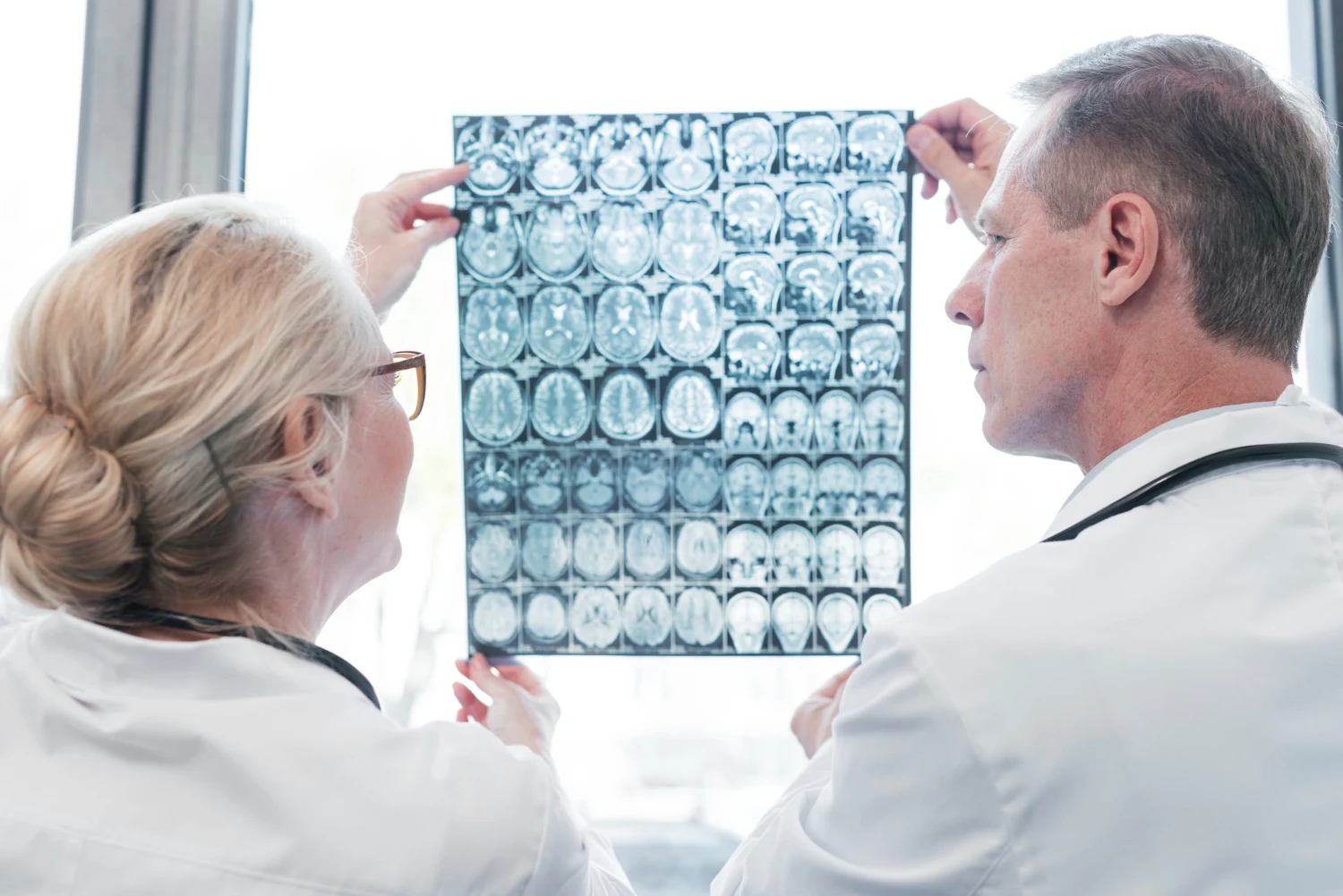How Alcohol Consumption Affects Your Brain: The Link to Dementia Revealed
Have you ever wondered how drinking too much can affect your brain and lead to dementia? This article covers everything from understanding the link between alcohol and dementia to how alcoholic dementia differs from other forms of the condition. You'll also discover the long-term effects of alcohol on brain health, insights into vascular dementia, and the signs to watch out for. In addition, we explore treatment options and even discuss whether some effects might be reversible.

What is the Relationship Between Alcohol and Dementia?
Have you ever thought about what happens to the brain after years of heavy drinking? It might lead to severe brain damage.
First off, for the brain to function correctly, it needs enough thiamine (vitamin B1), which will be lacking in individuals with unhealthy drinking habits because alcohol can directly interfere with the absorption of thiamine in the digestive system.
Beyond that, alcohol is harmful to nerve cells. It poisons them, making them unable to communicate well, which translates into memory loss and bad coordination.
This lack of coordination, for instance, can cause a moment of clumsiness or even an accident while one’s drunk, leading to head injuries. Mix that with the damage to your blood vessels from years of drinking (that will be covered later in the article), and you've got a recipe for serious brain problems.
What are the 3 Main Types of Alcohol-Related Brain Damage?
There are three main types of alcohol-related brain damage to know about Wernicke-Korsakoff Syndrome and alcoholic dementia.
Wernicke-Korsakoff Syndrome combines two related conditions: Wernicke's encephalopathy and Korsakoff's syndrome.
Wernicke's Encephalopathy is the acute phase caused by a severe lack of thiamine that hits suddenly and hard. It shows symptoms like confusion, problems with coordination (ataxia), and paralysis of eye muscles (ophthalmoplegia). Without prompt thiamine treatment, it can worsen quickly and even lead to coma or death.
Korsakoff's Syndrome is the chronic phase, often following Wernicke's encephalopathy. It's known for severe memory loss, especially in short-term memory. People with Korsakoff's syndrome may struggle to form new memories and create false memories (confabulation) to compensate for gaps.
Lastly, alcohol-related dementia does not happen onset, like the Wernicke-Korsakoff Syndrome, but rather happens when long-term heavy drinking damages the brain, causing problems with thinking, memory, and decision-making.
These brain problems tend to hit hardest in your 50s. Interestingly, middle-aged women may be at higher risk because their bodies process alcohol differently compared to men.
How to Differentiate Alcoholic Dementia from Other Forms of Dementia?
|
Factor |
Alcoholic Dementia |
Other Forms of Dementia |
|
Medical History |
Chronic, heavy alcohol consumption: Pattern and duration of alcohol use are crucial |
Family history of dementia; Medical conditions (hypertension, diabetes); Head injuries or neurodegenerative diseases |
|
Onset & Progression |
More rapid onset of symptoms; Anterograde amnesia and executive dysfunction prominent; May show stepwise decline following strokes (vascular dementia) |
Gradual progression of symptoms; Memory loss in early stages (Alzheimer's) |
|
Neurological & Cognitive Symptoms |
Cerebellar signs (ataxia, tremors); Peripheral neuropathy; Evidence of brain damage on imaging |
Visuospatial difficulties (Alzheimer's); Executive dysfunction (frontotemporal dementia); Specific cognitive deficits vary by type |
|
Response to Treatment |
Some cognitive improvement with abstinence and nutritional support |
Limited cognitive improvement with lifestyle changes alone |
|
Behavioral & Psychiatric Symptoms |
Impulsivity, emotional lability, social disinhibition, confabulation |
Apathy, depression, agitation, hallucinations (vary by type) |
|
Diagnostic Tests |
MRI may show frontal/temporal lobe atrophy, white matter changes |
Neuroimaging may indicate Alzheimer's plaques, vascular changes, or specific lesions |
|
Functional Impairment |
Decline related to cognitive & physical impairments |
Gradual loss of ability to perform daily tasks |
The Effects of Long-Term Alcohol Use on Brain Health
Dementia caused by alcohol, known as alcohol-related dementia (ARD) or alcohol-induced dementia, is a condition that arises from long-term excessive alcohol consumption. The mechanism through which alcohol contributes to dementia is multifaceted and involves both direct and indirect effects on the brain.
When consumed in excess over many years, alcohol behaves like a toxin for brain cells. We see a gradual erosion of the white matter in the brain. This white matter is the communication highway, allowing different brain regions to talk effectively. As more and more of these highways get damaged, it severely disrupts the brain's ability to process information and coordinate its complex functions properly.
This white matter deterioration starts manifesting through difficulties with memory, changes in personality and behavior, and declining skills in areas like decision-making or problem-solving.
On top of the brain damage caused directly by alcohol, heavy drinking often leads to inferior nutrition, which makes things even worse. Many people who drink heavily don't get enough essential vitamins, as mentioned above.
In addition to the brain impacts from alcohol's direct neurotoxicity and nutritional deficiencies, heavy long-term drinking also takes a toll on the liver.
When you drink alcohol, it gets absorbed into your bloodstream and processed by the liver, where enzymes try to break it down first into a toxic substance and then into harmless compounds to be eliminated from the body. However, the liver can only handle so much alcohol per hour.
Drinking too much too frequently overwhelms and damages the liver over many years of this abuse. With a compromised liver unable to effectively filter toxins, these substances can build up in your blood and make their way to the brain, causing further cognitive impairment and decline on top of alcohol's other brain-damaging effects. So, the deterioration of liver function is another way excessive drinking piles on more brain trauma.
As a result of the toxins building up in the body and the fact that heavy drinking raises blood pressure and contributes to atherosclerosis, it can lead to vascular dementia due to impaired blood flow in the brain.
Finally, long-term alcohol use is linked to shrinkage in the brain’s frontal lobes, which are vital for making decisions, planning, and controlling impulses. This shrinkage leads to the cognitive problems often seen in people with alcohol-related dementia.
Signs and Symptoms of Alcohol-Related Dementia
|
Category |
Dementia Symptoms |
Alcohol-Induced Dementia Symptoms |
|
Memory |
Gradual memory loss, difficulty remembering recent events, forgetting important information |
Rapid onset of memory problems, especially forming new memories |
|
Executive Function |
Difficulty planning, organizing, problem-solving |
More pronounced problems with planning, organizing, and problem-solving |
|
Behavior |
Mood swings, irritability, social withdrawal |
Irritability, emotional lability, impulsivity, social disinhibition (fluctuates with alcohol consumption) |
|
Movement |
Difficulty with coordination |
Uncoordinated movements, tremors, gait disturbances |
|
Response to Treatment |
No significant improvement with treatment |
Cognitive symptoms may improve with abstinence from alcohol |
|
Nutritional Deficiencies |
May have deficiencies in vitamin B1 |
Deficiencies in thiamine (vitamin B1) and other nutrients can worsen symptoms. |
Can Alcohol Cause Dementia to Be Reversed?
The answer to the question above could be more straightforward.
If an individual with alcohol dementia stops drinking and begins to resupply their body with essential nutrients like thiamine, the condition may be reversed or at least lessened.
In addition to providing the brain with the energy it needs to operate correctly, thiamine also acts as a combatant to lessen the harmful effects of alcohol on the body's residual toxins.
Alcohol-related dementia itself is caused by the straight-up toxic effects of all that damage your brain over many years of heavy drinking, such as shrinkage and some severe cognitive impairments.
The reversibility of alcohol-induced dementia depends on how severe and how long that alcohol abuse has been going on. The longer and more complex the drinking habits, the less likely the cognitive damage can be undone.
It also depends on the extent of the brain damage that has already occurred. If it's minimal or moderate, there's a higher chance of reversing some of those cognitive deficits by quitting drinking and getting proper treatment. But if the damage is severe or widespread throughout the brain, the chances of reversal are much lower.
Age and overall health also play a significant role. Younger individuals and those in generally better health tend to have a better shot at recovery compared to older individuals or those dealing with other medical issues on top of alcohol abuse.
But—and this is a big 'but'—even with sustained abstinence, recovery might not be complete. Some cognitive deficits could very well stick around for good. It varies from person to person based on all those factors just mentioned.
What Causes and Prevents Dementia?
|
Causes of Dementia |
Prevention Strategies |
|
Neurodegenerative diseases (Alzheimer's, Parkinson's, Huntington's) |
Healthy Lifestyle (Exercise, balanced diet, weight management) |
|
Vascular disorders (Strokes) |
Mental Activity (Puzzles, learning new skills) |
|
Traumatic brain injuries (Concussions, severe head injuries) |
Chronic Condition Management (Blood pressure, cholesterol, diabetes control) |
|
Infections (HIV/AIDS, chronic brain infections) |
Social Engagement (Staying socially active) |
|
Toxic reactions |
Social Engagement (Staying socially active) |
|
Nutritional deficiencies |
Head Injury Protection (Helmets during sports, seat belts in vehicles) |
Alcohol-Related Dementia Treatment Options
The first and most important step is addressing the root cause – alcohol abuse. Getting sober is the top priority because continuing to drink will only make the brain's condition worse. This initial challenge should involve going through a medically supervised detox or getting counseling to find ways to break free from alcohol's grip the best way.
Explore options such as outpatient counseling, inpatient rehabilitation programs, and support groups like Alcoholics Anonymous. These resources provide the tools necessary to maintain sobriety and safeguard your brain.
But stopping alcohol use is just the beginning. Treating this type of dementia also involves taking medications to help the brain heal. Cholinesterase inhibitors are key because they boost brain chemicals that help with memory and clear thinking. Since dementia can also lead to mood swings and other behavioral changes, doctors might prescribe antidepressants or antipsychotics to help stabilize these emotions.
Several treatments are available for properly managing symptoms. Speech treatment preserves strong communication skills, essential for everyday interactions, whereas occupational therapy promotes independence in daily duties. Furthermore, physical therapy seeks to maintain strength and mobility, knowing that a healthy body leads to a healthy mind.
Related Articles
Treatment Centers in Virginia






